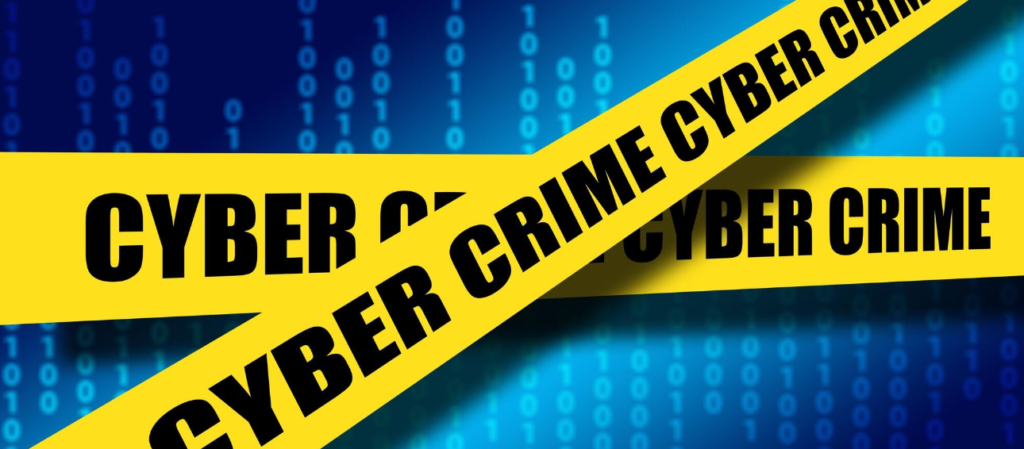Major ransomware attacks have become an alarming reality for businesses worldwide. These malicious cyber incidents often cause major disruptions. They risk everything from daily tasks to long-term operations.
Ransomware can cause a business to lose all access to its data. This can cripple its ability to operate.
It’s critical to know how ransomware can impact businesses. Companies rely more on technology and data now.
The Immediate Effects of Major Ransomware Attacks
The effects of a ransomware attack can be felt immediately. When hackers lock down a company’s data, operations can stall to a crawl.
Employees may lose access to essential files. Email will cease, and productivity will plummet.
Organizations incur a significant disruption following an attack. This downtime can lead to the loss of customers and a delay in services, directly affecting revenue.
Loss of Access to Critical Systems
One of the primary impacts of major ransomware attacks is the loss of access to critical systems. When systems are locked, businesses can’t operate as usual. Employees can’t access the tools they need to do their jobs; it’s like trying to work in a dark room without any light.
In industries reliant on technology, this result can be devastating. For example, healthcare providers may lose access to patient files or tools. This could delay necessary treatments.
Financial Losses and Their Ripple Effects
The financial implications of a ransomware attack can be staggering. In many cases, businesses face a decision: pay the ransom and restore access or refuse to comply.
Companies might pay ransoms over $200,000. This doesn’t include recovery costs, lost revenue, and lower productivity. Thus, the overall financial impact can exceed millions.
After a major ransomware attack, recovering operations is another burden organizations must face. Companies must not only choose whom to consult. They must also manage their resources to restore lost data.
This process often requires extensive manpower, leading to additional costs. The longer the recovery, the more lost profits. This harms the business.
The Threat to Business Reputation
Aside from financial losses, a ransomware attack can severely harm a company’s reputation. Customers expect their providers to safeguard sensitive information.
If a company falls victim to a major ransomware attack, trust may dissolve overnight. Consumers believe businesses must do more to protect their data. This skepticism can cause a loss of current customers. It may also deter new clients from forming relationships.
Once trust is lost after an attack, it can be challenging to rebuild. Customers might take their business elsewhere, favoring competitors seen as more secure.
Companies may see a drop in sales. Clients may hesitate to share personal info again. Regaining the trust of customers may take years, if possible at all.
Disruptions in the Supply Chain
Ransomware’s impact doesn’t stop at the business’s doors; it extends to the entire supply chain. If a major ransomware attack occurs within a company, it can halt the flow of goods and services.
Suppliers may fail to deliver products. Distributors cannot transport items. This will cause more financial losses.
The disruption acts like a chain reaction. A ransomware attack on an electronics maker might delay their suppliers’ parts. This would slow the supply of finished products.
Businesses that depend on these products may, in turn, face losses, setting off a domino effect. Businesses report experiencing disruptions in their supply chain due to cyber incidents.
Risks to Intellectual Property
Major ransomware attacks can also endanger a company’s intellectual property (IP). This includes trade secrets, proprietary tech, and unique processes. They give a business its competitive edge.
Cybercriminals often seek to steal valuable data. They hold it for ransom or sell it to competitors.
When IP is compromised, it can hinder a company’s efforts to innovate and develop new products. It affects not just current capabilities but also future growth plans.
Companies may even lose entire product lines if sensitive data is leaked or made public. Protecting intellectual property is crucial in today’s competitive landscape.
Developing a Ransomware Response
Major ransomware attacks can harm business operations in many ways. So, it’s essential to develop a robust Ransomware Response plan. A proactive approach reduces risks. It helps a business recover quickly after an attack.
Businesses should invest in cybersecurity training for employees in their response plans. Develop an effective communication plan for both internal and external stakeholders.
It should include clear messaging to customers and partners. This will help to minimize reputational damage and maintain trust.
Staying Vigilant
The ever-evolving landscape of cybersecurity requires constant vigilance. Businesses must remain aware of potential threats and adapt to mitigate risks. Subscribing to threat intelligence services can also arm an organization with the necessary insights.
Using best practices can boost defenses against ransomware. They include multi-factor authentication, strong passwords, and regular updates.
Staying educated about the latest trends in cybersecurity is critical. The more knowledge an organization has, the better it can protect itself.
Moving Forward After an Attack
Recovering from a ransomware attack is no easy feat, but it is possible. Companies must restore operations, regain customer trust, and ensure data integrity. Sharing lessons learned and reinforcing security measures will improve resilience against future attacks.
Resilient, careful businesses can recover from ransomware attacks and emerge stronger. Organizations should see these incidents as chances to improve security and processes.
Building Cyber Resilience
Recovering from a ransomware attack is tough. But, it can teach valuable lessons that boost a company’s cyber resilience. After the dust settles, companies should act to strengthen their defenses. They can invest in better cybersecurity, audit their systems, or hire consultants.
Going forward, businesses must be vigilant and proactive about cybersecurity. It means adapting to new threats. It means staying updated on best practices. And, it means using threat intelligence to anticipate risks.
Ransomware attacks are a major challenge. But, organizations that learn from them and improve their security can resist future cyber threats better. They can also protect their long-term business interests.
Understanding the Full Impact of Major Ransomware Attacks
Major ransomware attacks can cripple businesses. They cause lost access, financial losses, and reputational damage. The ripple effects reach beyond the business, impacting supply chains and IP. Organizations must prioritize strong security and response plans to counter this threat.
Stay proactive and prepare your business to withstand cyber challenges in the future.
If you enjoyed this article and would like to read more like it, please check out the rest of our blog today.







